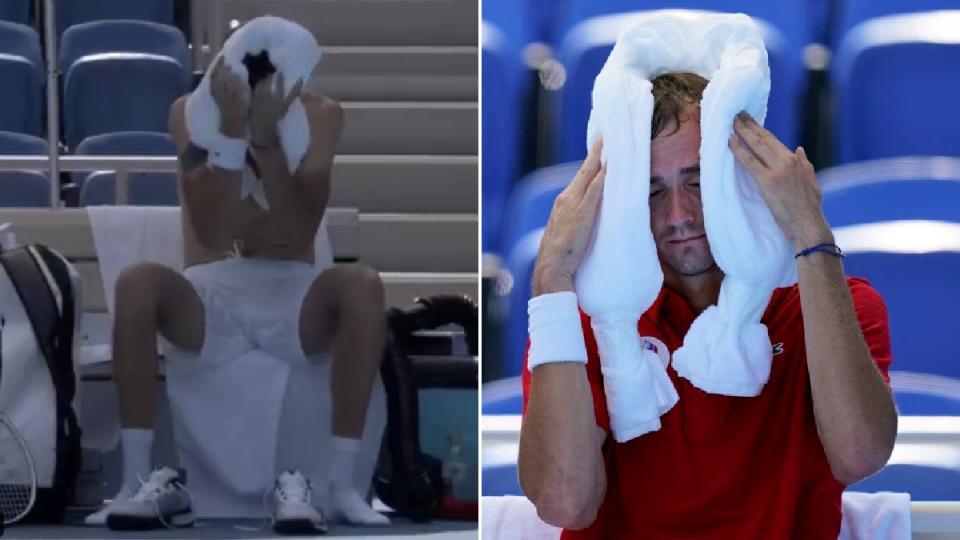It’s still the greatest show on Earth, but the Tokyo 2020 Olympic Games have been far from straightforward.
The build-up to this year’s Olympics focused on the continuing COVID-19 pandemic, with athletes readying themselves for an unusually quiet competition as spectators were banned from watching. Protestors called for the already postponed event to be cancelled entirely, arguing that the influx of international competitors and their subsequent teams would lead to a spike in coronavirus cases.
While there has been an increase in cases, with some athletes unable to compete after testing positive, so far things have run fairly smoothly from a pandemic perspective.
Perhaps critics should have been focused on a different, equally unwelcome guest that has overshadowed much of the Games so far: the heat. Though the virus was undoubtedly people’s biggest concern ahead of Tokyo 2020, the temperature has taken centre stage since the event started.
This Olympics looks set to be the hottest on record. Though some efforts have been made to mitigate the extraordinary heat, the athletes’ palpable suffering has left some people questioning the entire future of the Games in our increasingly hotter world.
‘No sport can escape’: Tackling climate change at the Tokyo Olympics
How has the heat affected athletes at the Tokyo Olympics?
Kristian Blummenfelt won the men’s triathlon last Sunday. The Norwegian athlete stormed to victory after a phenomenal run, finishing 11 seconds ahead of the next athlete.
But shortly after crossing the line, Blummenfelt vomited and collapsed to the floor. He was carted away in a wheelchair to see the medical team – and he wasn’t the only one.
While it’s certainly not unusual to see athletes pass out at the end of a race in any weather – particularly in an event as punishing as triathlon – the extreme conditions were certainly a key factor.
The event was moved earlier, starting at 06:30 JST in a bid to beat the heat, but the water temperature was already an extraordinary 30C. Though some international triathlon organisations have guidelines forcing the swim portion to be reduced at this temperature, the full distance (1500m) went ahead in Tokyo.
Athletes then had to cycle 40km and run another 10km in steadily rising heat, reportedly around 27C for most of the race. It wasn’t surprising, therefore, that the men’s finish line looked like the aftermath of a particularly nasty brawl.
In an effort to combat the temperatures, athletes have been stuffing ice packs down their clothes.
The triathlon events are far from the only competitions affected though. Russian archer Svetlana Gomboeva passed out during a qualifying round, while numerous tennis players have spoken out about the conditions.
“If I die, will the International Tennis Federation take responsibility?” asked Daniil Medvedev of the umpire in his match last week. “I can finish the match, but I can die,” the 25-year-old Russian player added.
In an effort to combat the temperatures, athletes have been stuffing ice packs down their clothes, drinking slushies, and cooling off in ice-filled paddling pools, these makeshift solutions to the heat have left many people wondering why Tokyo was chosen as the host city and what global warming means for Paris, Los Angeles and Brisbane.
Ever since the city won its Olympic bid in 2013, commentators have queried whether its climate was suitable for such an event. Some have even accused Japanese officials of lying about the weather.
During the Olympic test events in 2019, athletes faced similarly gruelling conditions to this year. Rowers received medical treatment as they slumped across the finish line, while the swim in the paratriathlon was cancelled and the women’s triathlon run was cut short. But the climate crisis has increased the risk significantly.

